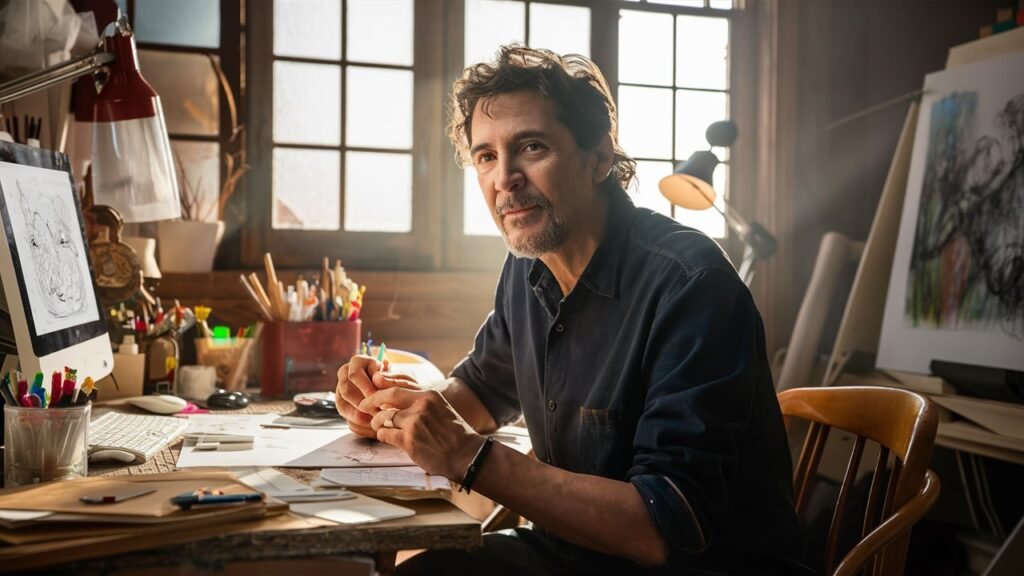Abraham Quiros Villalba’s journey to success is not one that came without its fair share of challenges. While many know him today as a leader in [insert industry], his story is a testament to perseverance, resilience, and the ability to adapt in the face of adversity. Throughout his career, he has confronted a number of obstacles, both personal and professional, which he navigated through grit, determination, and a focus on long-term goals. Below, we explore some of the key challenges Abraham faced and how he turned them into opportunities for growth.
1. Breaking into a Competitive Industry
In the early stages of his career, Abraham faced the universal challenge of entering a highly competitive industry. Whether it was [describe the industry—technology, business, or another sector], new entrants often find it difficult to establish themselves, especially when competing against established names with more resources and experience. Abraham’s initial years were no exception.
However, what set Abraham apart was his refusal to accept this as a barrier. Instead of viewing the competition as a reason to give up, he used it as motivation to distinguish himself. He began by focusing on [specific skills, qualities, or knowledge], which were in high demand but relatively underserved in his field. This focus on niche expertise helped him create a unique value proposition for potential employers and collaborators. Rather than trying to follow the traditional path, Abraham identified areas where he could stand out and pursued them relentlessly.
His ability to network with key players in the industry, build meaningful relationships, and offer solutions that others weren’t able to see allowed him to gradually build a reputation. The early struggle of breaking into the industry, which might have been discouraging to many, became a stepping stone for Abraham to shape his career on his own terms.
2. Overcoming Personal Setbacks and Health Challenges
Aside from the professional challenges Abraham faced, he also confronted personal setbacks that tested his resolve. Like many high-achievers, he has had to balance personal issues with the demands of a growing career. At one point, he faced significant health challenges that temporarily sidelined him from his work.
During this period, Abraham could have succumbed to the pressure and allowed his health issues to derail his ambitions. Instead, he took a proactive approach to his well-being. Abraham didn’t just focus on healing physically but also worked on his mental resilience. He used the time away from his career to reflect on his purpose and what truly mattered to him. This period of introspection helped him come back stronger than ever, with a renewed sense of clarity and focus.
In fact, the experience taught him invaluable lessons in time management, prioritizing self-care, and delegating effectively. Abraham began to understand the importance of balance—not just in terms of career, but in life as a whole. He developed a mindset that not only valued his professional accomplishments but also placed significant emphasis on mental health, physical well-being, and time with loved ones.
3. Navigating Cultural and Social Barriers
Abraham’s background played a crucial role in his formative years. Born in [location or country], where [mention any relevant social, cultural, or economic challenges], Abraham faced cultural and social barriers that many would have seen as obstacles. His upbringing in [describe his socio-economic background] was not without its hardships. From a young age, he had to contend with the limitations of his environment, including limited access to resources and opportunities.
However, rather than viewing his background as a hindrance, Abraham embraced it as a source of strength. His experiences helped him develop a strong sense of resilience, adaptability, and creative problem-solving. Rather than being discouraged by the challenges posed by his cultural and social environment, Abraham found ways to turn them into assets. His ability to navigate different cultural norms, manage social expectations, and communicate effectively across diverse groups allowed him to bridge gaps where others might have faltered.

In fact, these early experiences shaped much of his leadership style today. He learned how to work with people from a variety of backgrounds, empathizing with their unique struggles and motivations. His understanding of diverse perspectives made him an excellent team leader and collaborator.
4. Managing the Pressure of High Expectations
As Abraham’s career progressed and he became more successful, the expectations placed on him only increased. With recognition and leadership roles came higher demands, not just from colleagues and clients, but from himself. At one point, Abraham found himself overwhelmed by the weight of these expectations. The pressure to perform at an exceptional level, combined with the constant need to innovate and deliver results, created significant stress.
Rather than buckling under the weight of this pressure, Abraham took a more strategic approach. He focused on setting realistic goals and breaking down large, daunting tasks into manageable steps. By embracing a methodical and disciplined approach to problem-solving, Abraham was able to meet and exceed the expectations placed upon him without sacrificing his well-being.
Additionally, he surrounded himself with a trusted team and sought mentorship from others who had navigated similar pressures. Abraham learned to delegate tasks effectively, trusting his team members to carry out specific roles while he focused on leading the broader vision. This collaborative approach allowed him to manage the pressure while ensuring continued growth and success.
5. Transforming Setbacks into Opportunities for Innovation
Every professional journey is marked by setbacks, and Abraham’s career was no exception. Early on, he faced significant setbacks in the form of project failures, missed opportunities, and even initial rejections. These moments could have easily derailed his career and led him to question his path. But instead of viewing these setbacks as signs of failure, Abraham chose to see them as opportunities to innovate and improve.
For example, when a major project didn’t go as planned, Abraham took the time to analyze what went wrong, gathering insights from his team and mentors. Instead of letting the failure define him, he used it to make smarter decisions in the future. Abraham learned from each failure, tweaking his approach and refining his strategies. He became known for his ability to bounce back stronger from challenges, using failure as a catalyst for creativity and innovation.
One of the most notable examples of this came when he faced a major setback in [mention a specific project or product launch]. Despite initial setbacks, Abraham revisited the idea, made key adjustments, and eventually launched a version that far surpassed the original in terms of success and impact. This ability to turn setbacks into stepping stones was one of the defining features of his career and an integral part of his rise to success.
6. Mastering the Art of Self-Motivation
The ability to stay motivated, especially during difficult times, is one of the most important skills Abraham Quiros Villalba developed throughout his career. There were times when external validation or recognition was limited, and the road ahead seemed uncertain. At these points, Abraham had to rely on his own internal drive to continue pushing forward.
He developed a strong sense of purpose, constantly reminding himself of why he started on his journey in the first place. Abraham’s deep sense of mission—whether it was to innovate within his field, uplift his community, or create lasting change—kept him focused even when the road ahead seemed unclear. He also adopted daily habits that helped him stay disciplined and motivated, such as setting small, achievable goals and celebrating each milestone along the way. These habits, along with his unwavering belief in his potential, helped him weather even the toughest of times.
Conclusion
Abraham Quiros Villalba’s story is a powerful reminder that challenges are an inevitable part of any successful journey. What sets him apart is not the absence of obstacles, but his ability to face them head-on, learn from them, and emerge stronger. From breaking into a competitive industry to overcoming personal setbacks and transforming failure into opportunity, Abraham’s career exemplifies resilience and determination.
His story underscores the importance of perseverance, adaptability, and a positive mindset when facing adversity. Abraham Quiros Villalba’s ability to navigate challenges, coupled with his innovative approach and leadership, has allowed him to leave a lasting mark on his industry. His journey is far from over, and it serves as an inspiration for others to push through their own challenges and keep striving toward their goals.

